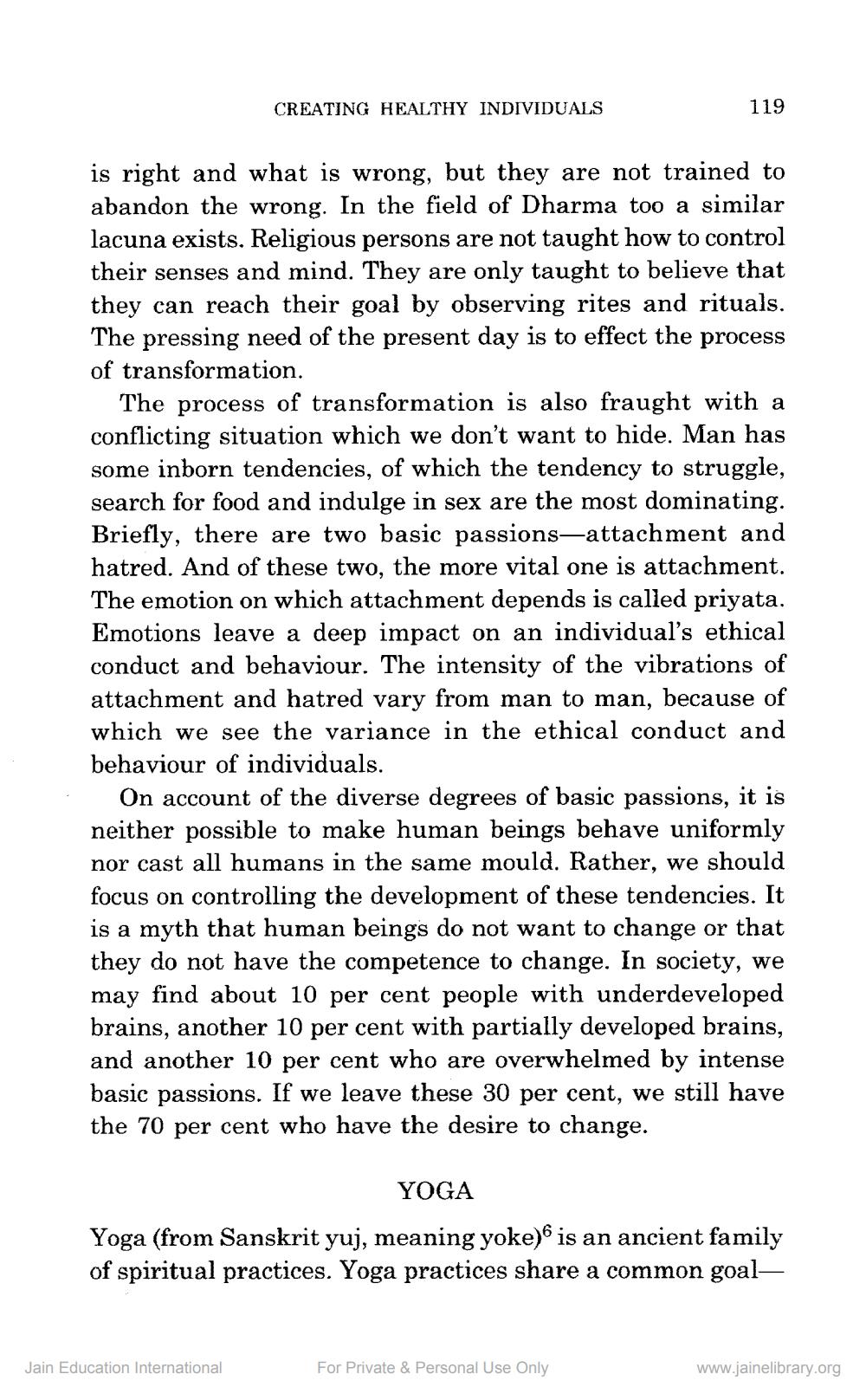________________
CREATING HEALTHY INDIVIDUALS
119
is right and what is wrong, but they are not trained to abandon the wrong. In the field of Dharma too a similar lacuna exists. Religious persons are not taught how to control their senses and mind. They are only taught to believe that they can reach their goal by observing rites and rituals. The pressing need of the present day is to effect the process of transformation.
The process of transformation is also fraught with a conflicting situation which we don't want to hide. Man has some inborn tendencies, of which the tendency to struggle, search for food and indulge in sex are the most dominating. Briefly, there are two basic passions-attachment and hatred. And of these two, the more vital one is attachment. The emotion on which attachment depends is called priyata. Emotions leave a deep impact on an individual's ethical conduct and behaviour. The intensity of the vibrations of attachment and hatred vary from man to man, because of which we see the variance in the ethical conduct and behaviour of individuals.
On account of the diverse degrees of basic passions, it is neither possible to make human beings behave uniformly nor cast all humans in the same mould. Rather, we should focus on controlling the development of these tendencies. It is a myth that human beings do not want to change or that they do not have the competence to change. In society, we may find about 10 per cent people with underdeveloped brains, another 10 per cent with partially developed brains, and another 10 per cent who are overwhelmed by intense basic passions. If we leave these 30 per cent, we still have the 70 per cent who have the desire to change.
YOGA
Yoga (from Sanskrit yuj, meaning yoke) is an ancient family of spiritual practices. Yoga practices share a common goal
Jain Education International
For Private & Personal Use Only
www.jainelibrary.org




